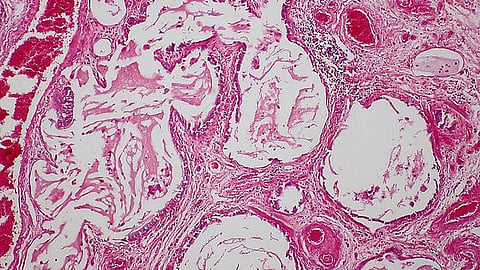“As A20 is downregulated in scleroderma, approaches to augment endogenous A20 expression or function might represent clinically viable therapeutic approaches for scleroderma and other intractable fibrosing conditions,” said Swati Bhattacharyya, Ph.D., one of the paper’s senior authors and a member in Varga’s lab. “Interestingly, our preliminary data suggested that both adiponectin and small molecule adiponectin receptor agonist, AdipoRon, can induce A20 expression and exerted antifibrotic effects,” she said.
Researchers plan to precisely define how A20 regulates fibrosis and how endogenous A20 levels can be boosted as an innovative treatment for fibrosis. (PB/Newswise)
Hurry up! Join the Medical Internship 3.0 at MedBound!


